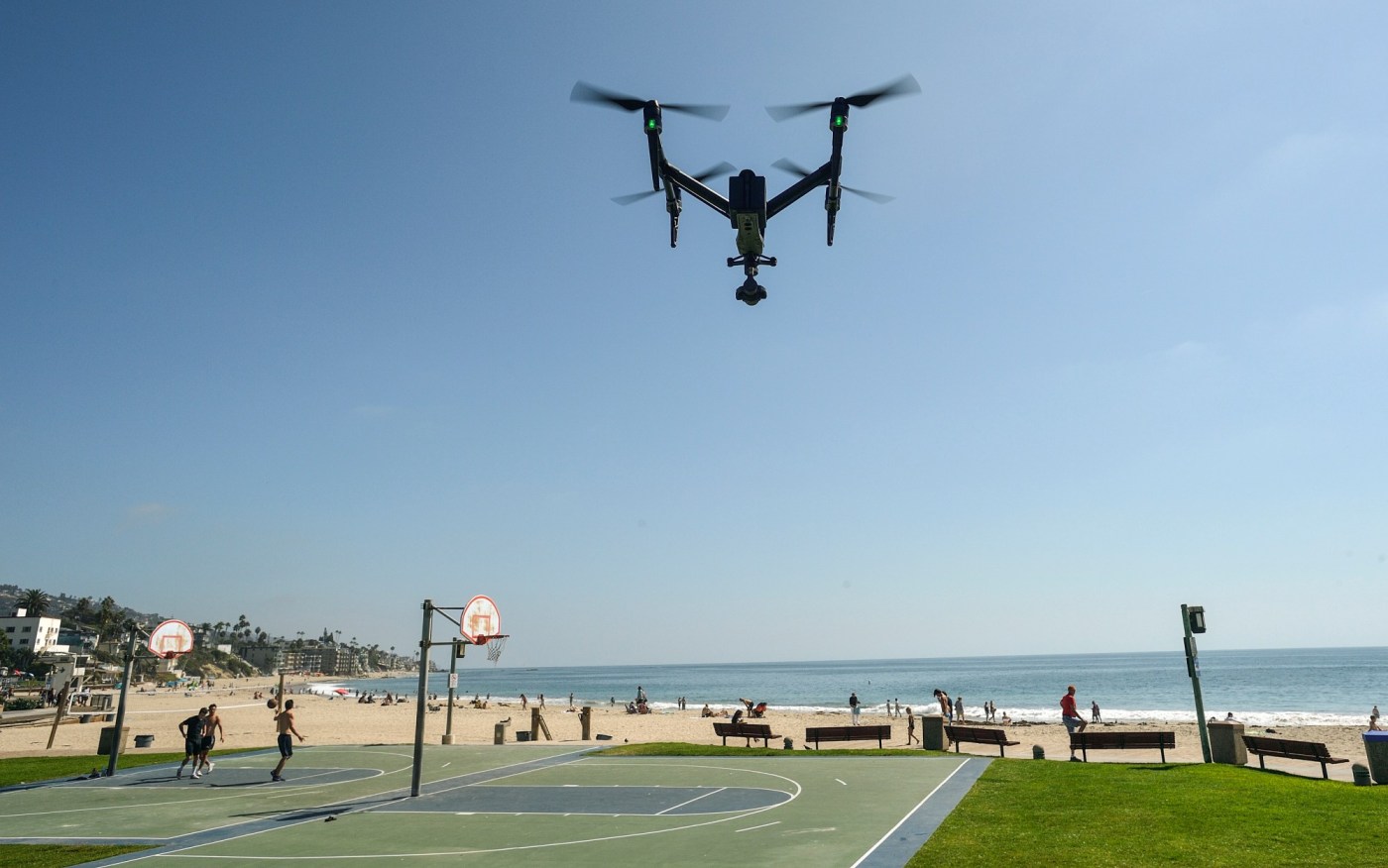Remotely operated drones will soon fly in the Irvine airspace, with the goal of responding to an emergency situation before the police.
Set to launch later this month, the “drone as first responder” pilot program will station two drones at a single flight location, ready to gather intelligence before and as officers arrive at a scene.
Irvine is partnering with major drone service provider Flying Lion to gauge the efficiency and impact of remotely operated drones in the city, said Sgt. Chris Bees.
“The pilot program is from an investment standpoint to measure the effectiveness,” said Councilmember Tammy Kim, who asked the Irvine Police Department to give a presentation about the program in September. “There isn’t a timeline. If the program is a success, we’ll invest in more drones.”
The pilot program will be funded through the Orange County Fire Authority’s unmanned aircraft system budget, established as part of the 2019 $50 million deal between the public safety agency and Irvine. About $100,000 will be allocated for the pilot program, said Kim.
Under Irvine’s current drone deployment model, team members made up of detectives and patrol officers carry a drone with them, Bees said. This approach requires police to first reach an incident location to deploy the drone, Bees said, incurring significant response and set-up time.
The new model stations the drones on the roof of a tall building with the pilot-in-command based in dispatch or a designated operating zone.
“The drones stand ready for immediate employment,” Bees said. “Their elevated position not only provides a broader view and increased range but also instantaneous aerial support.”
“DFR drones will not be actively patrolling the skies but will be on standby to provide essential support during emergencies,” he added.
Essential support includes de-escalation of a situation, Bees said. For example, he said, there was a situation in Chula Vista — where the DFR program was pioneered — when officers believed a man was holding a gun, but the drone was able to provide footage that showed the object was a lighter.
Officers are able to watch the drone footage live and make decisions on whether to intervene, said Bees.
“The situation ends without any harm to the public or officers,” he said.
The Irvine Police Department intends to set up a drone activity dashboard that “openly shares drone activity with the public,” Bees said.
The dashboard will display information like the nature and volume of calls addressed by DFR drones, individual flight locations, flight timing and arrest data.
“Our goal is to maintain transparency,” Bees said. “That ensures that communities are well-informed about how and why drones are being utilized within this pilot program.”
If the footage from the drone is not of evidentiary value, it won’t be saved or posted, Bees said, adding that the police department has no intention of arming any of the drones.
Irvine’s unmanned aircraft system program, commonly referred to as UAS, launched in 2019, said Irvine Police Chief Michael Kent, about a year after Laguna Beach launched its drone program, the first of its kind among police agencies in Orange County.
Related Articles
The clock is running out on LA County’s juvenile halls. Can they be fixed in time?
Manhattan Beach to hold vigil Friday for police officer killed in traffic accident
Police blame some deaths on ‘excited delirium.’ ER docs consider pulling the plug on the term.
‘He will be remembered as our hero:’ Slain deputy honored at Santa Clarita vigil
Psychiatric bed shortage blamed for failure to keep mentally ill from hurting themselves, others
Irvine’s program is focused on major traffic collisions, crime scenes, searches for major suspects who have fled from crime scenes, locating missing persons, mapping wildlife paths of travel and gaining visual access of rooftops, Kent said.
The program has grown over the years, Kent said, with approximately 350 flights conducted in 2019 to 1,700 flights in 2022. That growth led the department to explore expanding the program and using UAS technology as a “true first responder.”
If the pilot program is deemed successful, the department will transition it to full-time, said department spokesperson Sgt. Karie Davies.
“If we are able to decrease our response times by having this tool available and provide live updates to responding officers, that data would be a measurable to show the program is working,” Davies said. “Other measurables will come to light as the program progresses.”





